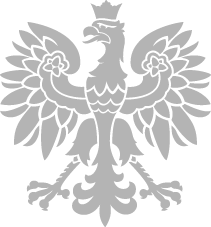Benefits
Exclusive integration of manufacturing and management sciences, supported by the Faculty of Production Engineering, as well as the multidisciplinary system of education, enable graduates to take professional position in which they are competent in solving technological and managerial problems, regardless the nature of the production process, whether it is in a larger or small enterprise, or in a research centre.
We aim to develop people who will reach the top. What does it take to be a successful leader in today's global, hyper-competitive and turbulent industrial environment ? How to compete on the global labour market ?
Our programmes are designed to develop multi-skilled professionals, holistically oriented, who have what it takes to lead in a global, multi-cultural environment. They are aimed to enhance you to transform your future by helping you to: accelerate an existing career path, change the function that you perform, the industry you work in, or the country you plan to work in, develop your own business.
It was also our intention to design programmes around your individual needs – you will be encouraged to set your own goals, to implement your own learning strategies and to review your own performance. You will be treated as a partner in learning with the academic staff, with your fellow participants and, where sponsored, with your employer.
Students at our faculty are viewed as participants in the learning process and there is a strong emphasis on applied learning to achieve the twin goals of “theory into practice” and “understanding into results”.
The global outlook and multi-cultural attitudes of our graduates result from the contribution to our programmes given by the links with internationally operating corporations as well as collaboration with the networks of academic organisations.
One of our major strengths is the internationally renowned teaching faculty. The majority of staff has top-class professional experience, strength reinforced by close links with outside organizations through consultancy and research: they deeply understand the problems of putting theory into practice. They are experienced in most aspects of industrial engineering and management in a wide range of industries. Complemented by visiting faculty, leading consultants and senior managers around the globe, they are a powerful teaching force from which our students can learn and grow.
All students receive personal attention, have access to advanced research and exchange ideas with academic specialists. The quality of teaching and learning is assured by restricted implementation of rigorous quality assurance standards. We offer our students modern teaching and learning facilities, including lecture rooms, computer studios, Internet-supported education, and study areas for teamwork.
We use a variety of teaching methods including formal lectures, tutorials, team-work and labs. You will be able to access teaching material through the university intranet. Approximately 50 percent of the learning is centred around active forms of studies, in which student participation is vital. It is the combination of case studies and the maturity and experience of our students that enriches the learning process. The use of case studies is particularly valuable not only in emphasising problem-solving and analytical techniques, but also in identifying problems and opportunities. It provides you with practice in committing yourself to decisions, implementation issues and solutions.
The use of learning teams and the subsequent classroom discussion is central to the process of personal development. The studying experience is not just about learning 'content'. It is also about developing you as an individual and as a professional, able to understand your own abilities. The learning team approach adopted throughout the program not only helps develop teamwork, leadership and interpersonal skills, but also affords the opportunity for faculty to work with the team to improve performance. We place particular emphasis on working in multicultural groups.
Each program culminates in a project/dissertation on a topic agreed between the students and their supervisor. It provides an opportunity to work on a practical and relevant issue in some depth, and embedded in a current, broader context. For many participants this is the most rewarding part of the learning experience. It provides links between theory and practice and often connects participants with industries with which they have career aspirations.
Assessment is spread throughout the year and is based on a combination of written examinations, which usually form no more than 50% of the marks, and a variety of other methods including case study reports, class tests, group presentations and project work. The purpose of these is to provide practice in problem solving and decision making under pressure, and to enable you to acquire confidence in producing persuasive and well-written professional reports.
The University has a long tradition of welcoming students from all parts of the world, enabling them to share the experience of academic life in Warsaw and to join the many graduates who are to be found in all parts of the world.

